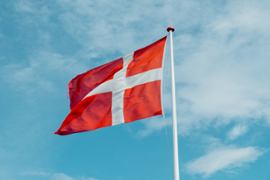Summary
- ROFUS consistently increases the number of self-excluded gamblers, highlighting the platform's effectiveness.
- In recent years, self-exclusion has increased, suggesting that more individuals are not only aware of this option but also recognizing the need for help in managing their gambling habits.
- Denmark is advancing with customized campaigns aimed at reducing consumer risks.
Denmark has reached a significant achievement in its mission to protect gamblers. The self-exclusion program ROFUS has surpassed a new milestone, with over 60,000 individuals registered. This tool is designed to enhance player safety.
ROFUS hits 60,000 registrations milestone
The Danish Gambling Authority established the Register of Self-Excluded Players to ensure player safety and monitor gambling trends in the country. According to the regulator's official website, the majority of those registered as self-excluded are young men. Celebrating this achievement, the Director of the Danish Gambling Authority, Anders Dorph, expressed satisfaction with the program, launched in 2012, for meeting its objectives. He stated, It is gratifying that those needing to exclude themselves from gambling are utilizing ROFUS. This demonstrates growing awareness of the tool and highlights its crucial role in combating gambling addiction. Since its inception in 2012, the program has steadily increased its number of registrants, with a sharp rise in recent years. In 2023, the authority announced a milestone of 40,000 registrations, a figure that has now exceeded 60,000 within just two years. This increase in registrations has helped pinpoint groups most vulnerable to gambling-related issues or more likely to sign up for the program. Notably, 58% of all registrants are men under the age of 40.
Denmark works on tailored approaches to address gambling-related harm
An emerging trend shows that 96% of people registering under the age of 20 are men. The data supports a pattern we've observed for years: young men are particularly vulnerable to problematic gambling behavior. As a result, we focus on educating this specific group, including through presentations at youth educational institutions, Dorph stated in response to the findings. Denmark is actively working to protect consumers from gambling-related harm, implementing targeted gambling campaigns for individuals aged 18-24. Concurrently, the country is taking bold steps to limit the influence of offshore gambling operations, successfully achieving a channelization rate of over 90%. Despite these efforts, both the regulator and Dorph acknowledge that there is still more work to be done.





























